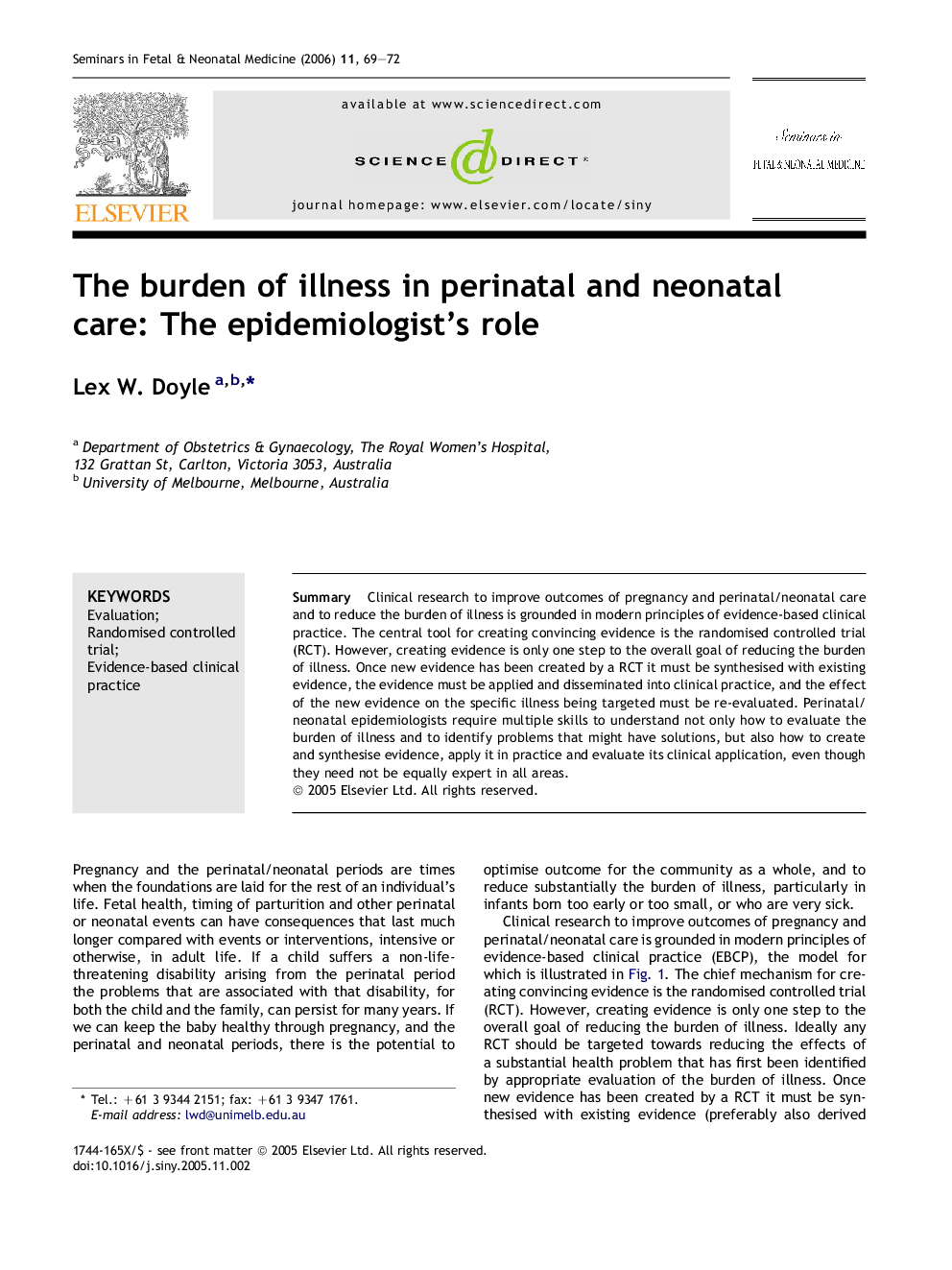| Article ID | Journal | Published Year | Pages | File Type |
|---|---|---|---|---|
| 3974822 | Seminars in Fetal and Neonatal Medicine | 2006 | 4 Pages |
Abstract
Clinical research to improve outcomes of pregnancy and perinatal/neonatal care and to reduce the burden of illness is grounded in modern principles of evidence-based clinical practice. The central tool for creating convincing evidence is the randomised controlled trial (RCT). However, creating evidence is only one step to the overall goal of reducing the burden of illness. Once new evidence has been created by a RCT it must be synthesised with existing evidence, the evidence must be applied and disseminated into clinical practice, and the effect of the new evidence on the specific illness being targeted must be re-evaluated. Perinatal/neonatal epidemiologists require multiple skills to understand not only how to evaluate the burden of illness and to identify problems that might have solutions, but also how to create and synthesise evidence, apply it in practice and evaluate its clinical application, even though they need not be equally expert in all areas.
Related Topics
Health Sciences
Medicine and Dentistry
Obstetrics, Gynecology and Women's Health
Authors
Lex W. Doyle,
